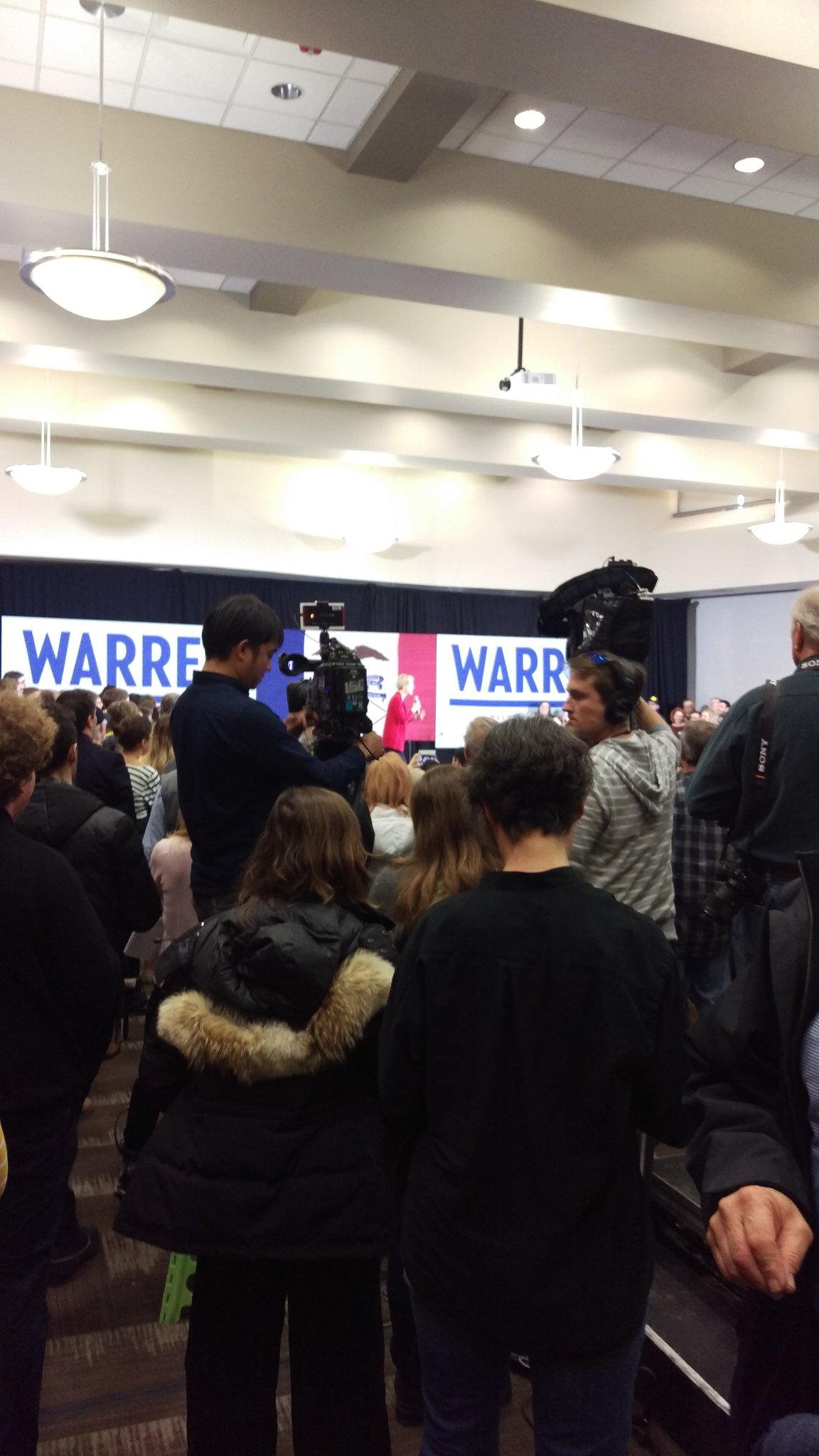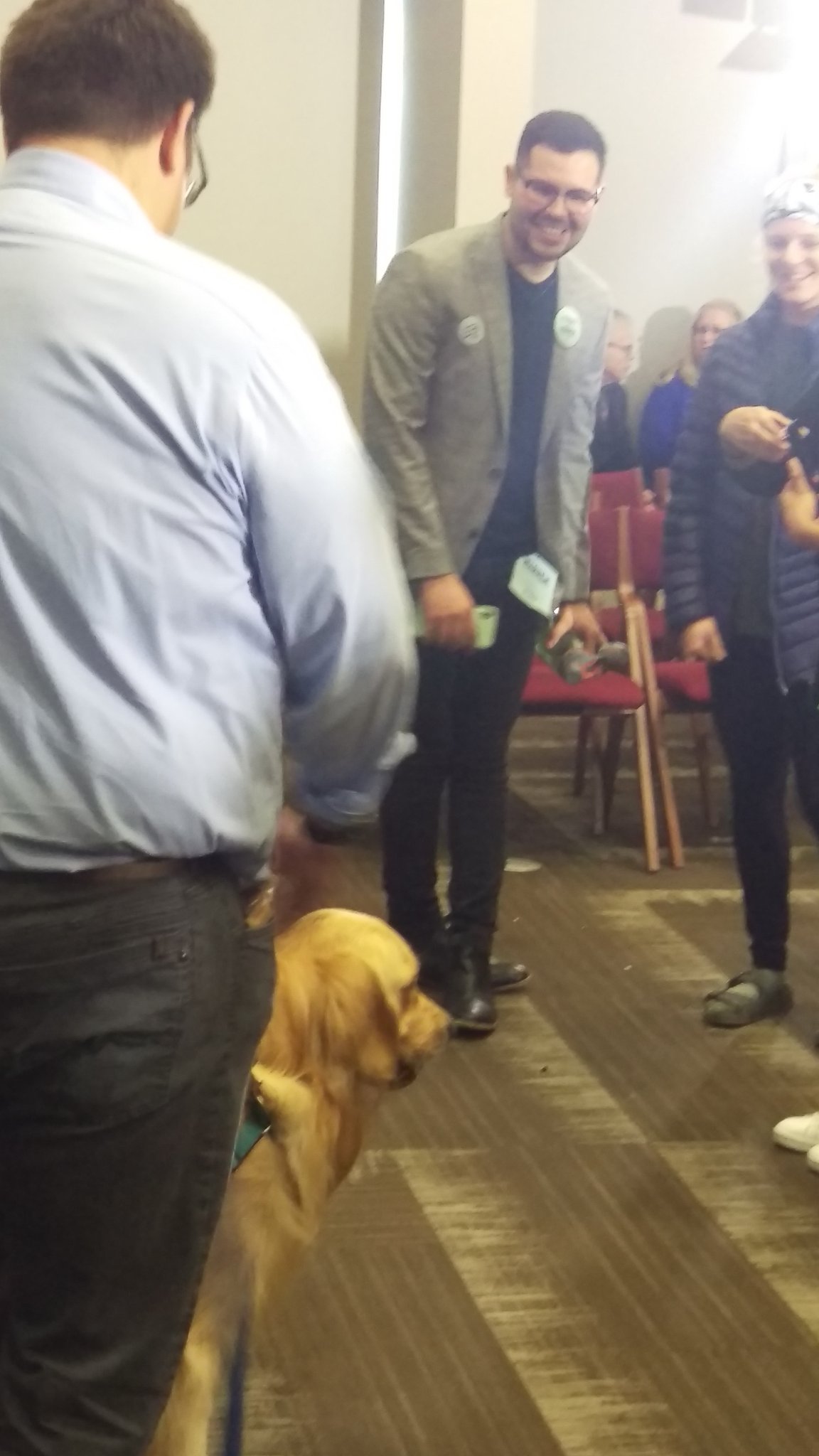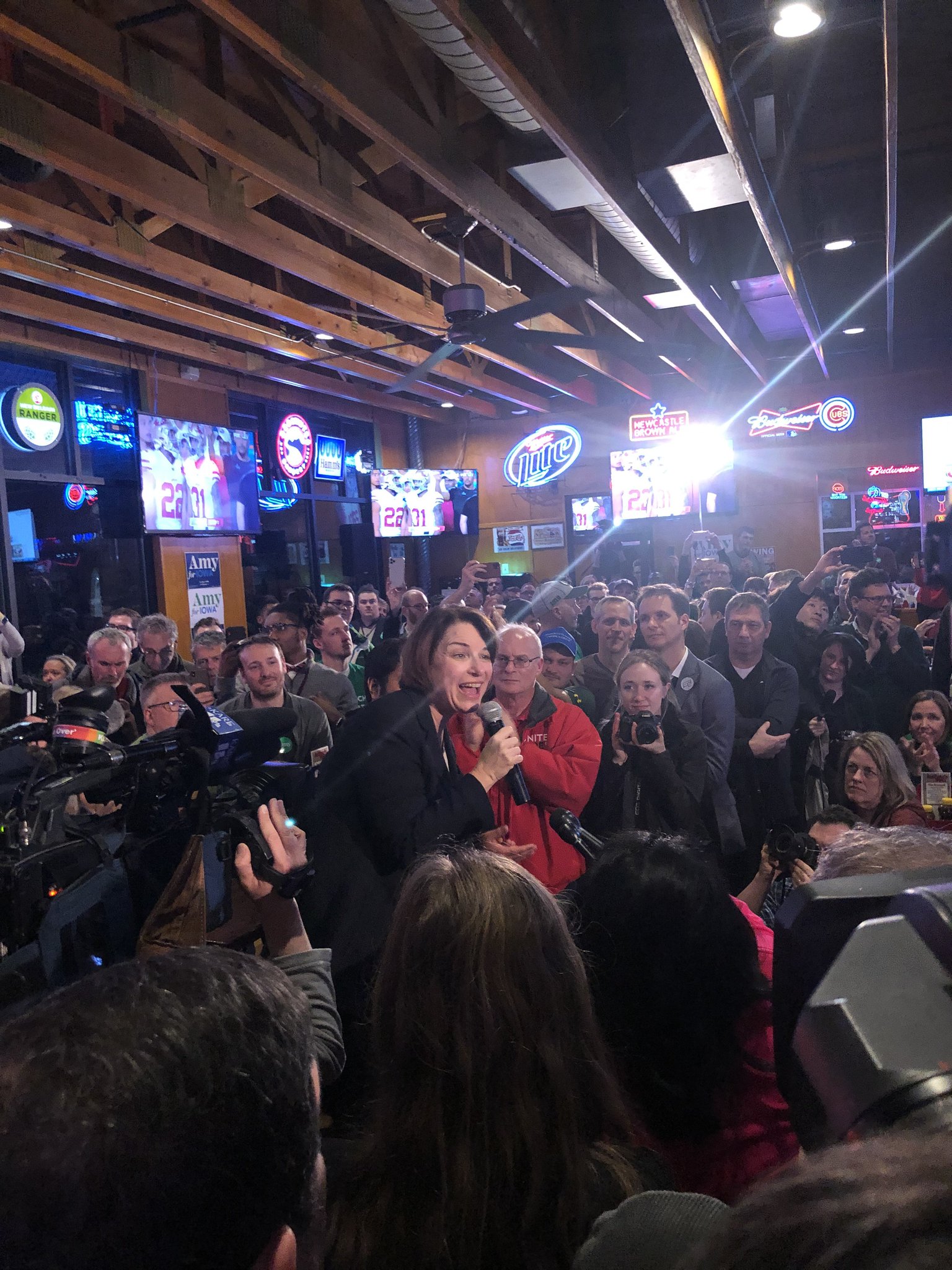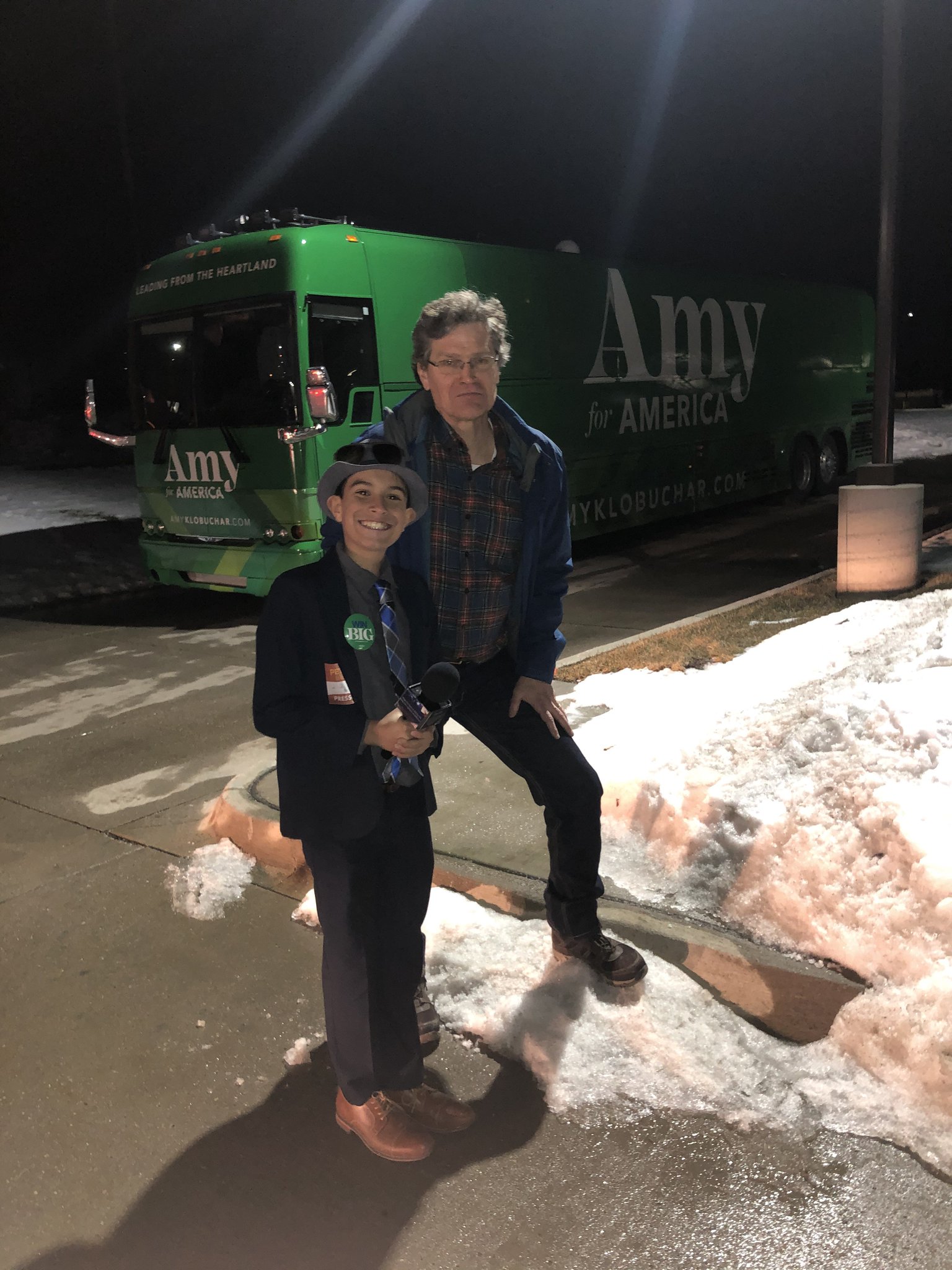With 96% of the popular vote counted, it appears that Vermont Senator Bernie Sanders has won Iowa’s recently concluded caucuses, narrowly defeating South Bend Mayor Pete Buttigieg by about 2,500 votes, although they are nearly tied in state delegate equivalents. [Update: Iowa has updated the results. With 99% reporting, here’s what they are showing:

But it is Buttigieg who appears to have gained the most momentum heading into next Tuesday’s first-in-the-nation New Hampshire primary. An Emerson College New Hampshire tracking poll shows Buttigieg gaining 9 points across the last two days. A Suffolk poll in the field during the same period also shows Buttigieg moving into second place and gaining on Sanders. He still trails the Vermont Senator by a bit more than 6% in the RealClearPolitics aggregate polling tracker, but is the only candidate along with Minnesota Senator Amy Klobuchar to see their support going up in the Granite State since Iowa’s results were announced.
What explains Buttigieg’s bounce? Most of his gains seem to be coming among moderate Democrats, and at the expense of former Vice President Joe Biden, who finished a disappointing 4th in Iowa, and who has dropped 2% in New Hampshire since then, and now sits third in the state’s RCP aggregate polls. Although he was second in the RCP aggregate polling heading into Iowa, Biden fell victim, in part, to that state’s somewhat unique caucus voting system. To understand why, it is worth looking more closely at how the Iowa caucuses operate. The next three posts will take on that task. Along with my wife, the well-known Vermont politician, and fellow researcher (and Middlebury student) Maggie Joseph, I spent three days in Iowa, culminating in observing voting in Des Moines on caucus night. I was fortunate to have Des Moines resident (and Middlebury student) Abbott LaPrade guiding our research team during our stay in Iowa. Before describing caucus night, and what I see as the reason for Buttigieg’s rise, let me set the context for the vote.
We began our Iowa swing by flying into Kansas City on Saturday, Feb. 1. The next day we headed north on Rte. 35, stopping to see candidate events and talking to voters on the way. One of the more interesting conversations took place with a long-time Democratic Party caucus coordinator working at a rest stop. She was quite candid in noting the limitations of the caucus system, and her preference for replacing it with a statewide primary, which she argued would be more representative of the state’s electorate. She said she was particularly worried about the influence of college students who turned out in large enough numbers to influence caucus results in college towns, even though many were only recently registered to vote in the state. I’ll return to her criticisms, and Iowa’s role in the nominating process, during my final post.
Our first candidate event was an Elizabeth Warren rally at Simpson College in Indianola just south of Des Moines. It was packed with what we estimated to be 400 plus people, with fire marshals keeping dozens more outside. We managed to work our way into the main room by badgering security. Once inside, we got our first glimpse of the massive media presence that we saw at all these events, and in Iowa more generally during our time there. This included a number of foreign correspondents.

Warren’s speech was similar to what we’ve heard from her in a New Hampshire rally. She opened with a brief review of her biography, followed by laying out the major theme of her candidacy: the need to fight corruption, fueled by big money, that is preventing the government from acting on the public’s preferences on a range of issues, from gun control to climate change to expanded child care. As always, however, she addressed most of her plans for “big structural change”, including the wealth tax, expanded health care coverage, loan forgiveness and free tuition to public colleges, in response to audience questions. She is very adept at using questions to segue into the points she wants to make. The talk was vintage Warren – animated, personable and with detailed policy responses. Unlike her speech in New Hampshire, she seemed far more energized here, perhaps because of the urgency created by the impending vote, and the realization that her poll numbers have been trending down. After concluding her speech, because of her tight schedule, she limited pictures to families with small children, but we were able to interview her dog Bailey.

We then headed to Lincoln High School in Des Moines for a Buttigieg rally, which turned out to provide an early glimpse into what would happen on caucus night. All of the candidate events were well-attended with enthusiastic crowds, but Buttigieg’s was the largest, with the most vocal contingent of supporters. Here’s Mayor Pete on stage at the Lincoln High School gymnasium.

Where Warren’s tone had a sense of urgency, Buttigieg sounded supremely confident. He began his speech by asking the crowd to visualize the sun rising on the first day after Trump was no longer president. In contrast to the fighting theme Warren emphasized, Buttigieg explicitly couched his candidacy in terms of its appeal to independents and even moderate Republicans. He stressed the need for unity to overcome the polarization in Washington, DC. Buttigieg sprinkled in policy statements during his address, and again during the Q&A, but this was a speech painted in broad thematic strokes, designed to inspire more than to anger. He ended by noting that it was in Iowa campaigning for Obama that led him to believe that “someone in the Midwest like me could wear a wedding ring.” This was Buttigieg’s final Iowa rally, and you could sense he felt confident heading into the next day’s caucuses.
We then dashed off to a Bernie rally, only to miss the candidate by a few minutes. The media were still lingering, however, as were his supporters, many of whom told us they were canvassing in previous days and were convinced that most of the supporters of candidates not likely to be viable would move to Bernie during the caucus. We also watched Abbott give interviews to foreign reporters (he would conduct several during the next two days).

That evening, after a wonderful meal at the LaPrade’s house where we watched the 49’ers cough up the Super Bowl, we headed out to our final candidate event – a Klobuchar rally at Jethro’s, a local restaurant in Johnston just outside of Des Moines. Again, the place was packed and we were only able to barely squeeze inside the main entrance. Because we couldn’t move very far, it was difficult to estimate crowd size, but it was definitely smaller than the Warren or Buttigieg events. Fortunately for us, Klobuchar came right through that entrance and set up shop just inside the door so we had a prime viewing spot for her speech.

She had flown in from Washington, where she was sitting with her fellow senators (including Sanders and Warren) as a judge during the impeachment trial, and yet she was still able to muster the energy to exhort the crowd to turn out the next day. Her voice was almost gone, but she was feeding off of recent polling which showed her gaining support in Iowa and she urged the crowd to build on the momentum by asking anyone and everyone to turn out on caucus day. She began her speech using her trademark humor, this time tossing out football metaphors on Super Bowl Sunday before switching to her campaign themes. Even more so than Buttigieg, she emphasized the importance of electing a candidate who could attract independent and Republican support and reminded her audience that she had never lost an election. She finished by promising she would fly back to Iowa from the impeachment trial the next day. It was a short speech, and she took no questions. As we left the building I ran into Phoenix, the Kid Reporter, who I had first met weeks before at a Tulsi Gabbard rally in Lebanon New Hampshire. Like me, Phoenix has been following the candidates across the country, and so we shared our political insights. He gives me confidence that our country’s future is in good hands.

Thus ended our first full day in Iowa. In my next post I’ll look more closely at the dynamics that partially explain why Buttigieg did so well in the Iowa caucus, and why Biden did not. In my third and final post in the Iowa series, I’ll examine Iowa’s place more generally, and preview the New Hampshire primary. But I’ll leave you with an explanation for why we went to Iowa in the first place, compliments of the well-known Vermont politician.

Addendum: The Boston Globe has just released this latest Suffolk tracking poll which also shows Buttigieg surging.

